‘We were team BYD’: Canberra family’s Chinese EV nightmare
An Aussie family who were among the first adopters of a popular EV brand have revealed a nightmare experience while driving at 100km/h.
On the Road
Don't miss out on the headlines from On the Road. Followed categories will be added to My News.
EXCLUSIVE
A family who were among the first adopters of popular electric car brand BYD say a nightmare customer service experience after their battery failed while driving has “completely turned us off” the Chinese company — and potentially EVs in general.
BYD has described the battery failure as an “isolated incident”.
Ian Cool, 41, and his wife Cate ordered their nearly $50,000 Atto 3 in March 2022 and received the car in November 2022 after a number of delays.
They had opted for BYD as Mr Cool found the Tesla awkward to drive due to the position of the speedometer.
While the Canberra father-of-three described the process of booking a test drive with BYD as a “complete shambles”, they were “happy enough with the car when we test drove it” and at first “we were very happy with it”, he said.
Mrs Cool, posing with their two of their sons, even appeared on the front page of The Canberra Times last April for a story about the surge in EV sales, and also featured on local news website RiotACT.
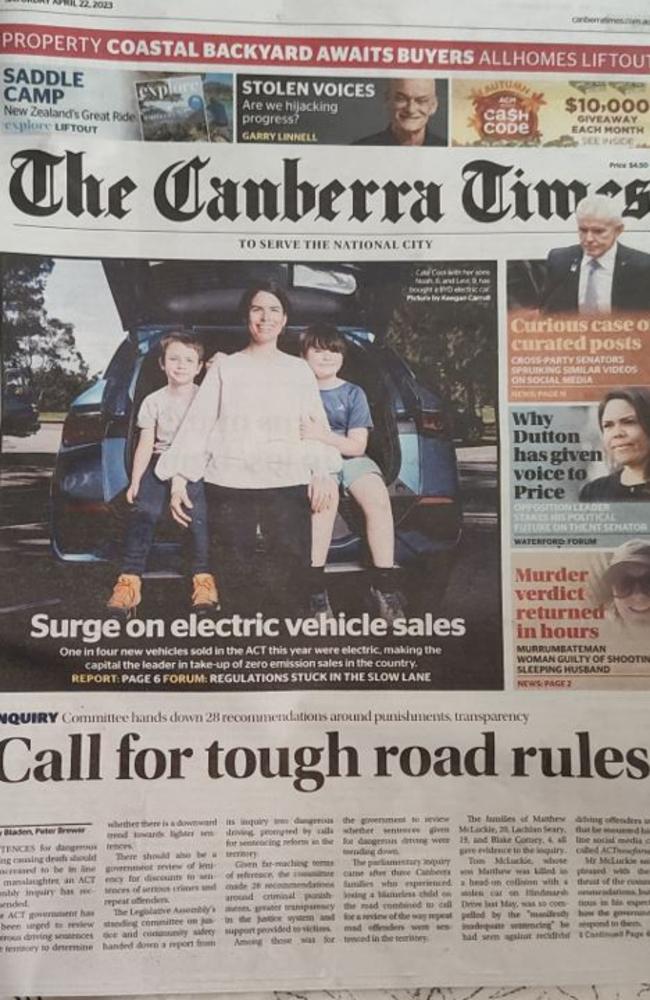
“We loved it — we were team BYD,” Mr Cool said.
That all changed on March 7 this year, when the Atto 3’s battery “dramatically failed” while Mrs Cool was driving to work on the Tuggeranong Parkway at 100km/h and she “suddenly lost all acceleration”.
She managed to “slowly roll into a slip lane” and “limped to a complete stop” at the entrance to the Canberra Arboretum with some “bells and whistles flashing”.
“Fortunately it was around 10am so it wasn’t peak-hour traffic, but someone could have easily [crashed into her from behind],” the public servant said.
The car’s internal readout was still showing 51 per cent battery at the time.
“We’ve driven the car down to 3 per cent battery in the past … with 51 per cent it’s not anywhere on your radar,” Mr Cool said.
The car was towed to the local BYD dealership.
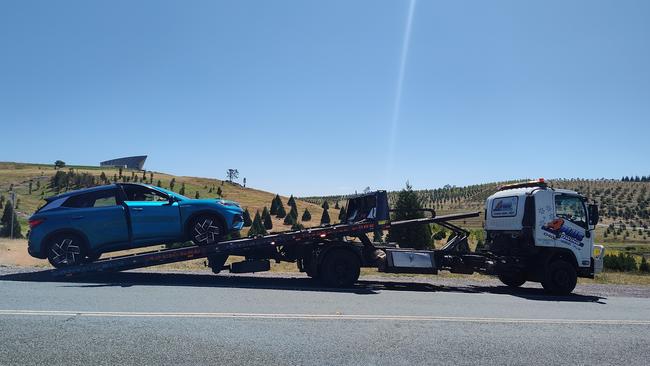
During this time, Mr Cool said dealing with BYD — even getting through to someone on the phone at first — was extremely difficult.
“First they insinuated we didn’t charge the car, which always puts you on the wrong foot,” he said. More than two weeks later, the Cools were informed that the 60kW battery had indeed failed and needed to be replaced under the eight-year warranty.
“Dealing with them in person when my wife dropped off the car we were quite angry with how they were treating us,” he said.
The Cools decided to seek a full refund for the car, arguing that the failure of the battery constituted a “major failure” under Australian Consumer Law.
According to the Australian Competition and Consumer Commission (ACCC), the definition of a major failure includes a situation where “if, as a reasonable consumer who was fully aware of the nature and extent of the failure, you would not have bought the car”, for example if “your car suddenly and unexpectedly loses power due to a manufacturing defect”.
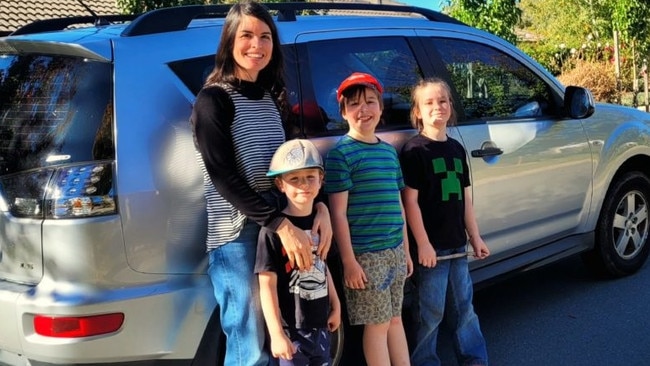
Mr Cool said after they indicated their intention to seek a refund of the car, BYD became “rude and evasive”.
“I guess that’s when it went sour,” he said. “Their attitude just grated on us so much.”
A senior BYD representative told them at a meeting that “if the car was three months old with a few thousand kilometres on it there’d be no problem for a full refund”, Mr Cool recalled.
“It would be a consideration under goodwill, not because a failed battery is considered a major failure,” the rep added in a follow-up email.
BYD instead offered to replace the faulty battery under warranty, or offer a trade-in amount at a price “based on the vehicle’s age and odometer reading”.
The Cools filed a claim with the consumer law team at Access Canberra, the ACT government’s regulatory compliance authority.
While awaiting a decision on their claim, they “reluctantly agreed” to have the battery replaced last month.
But in another twist, the Cools allege that the built-in dashcam footage from the March 7 incident had been wiped at some point before they got the car back on May 31.
When they received the car, they found the driving logs only went back to May 30.
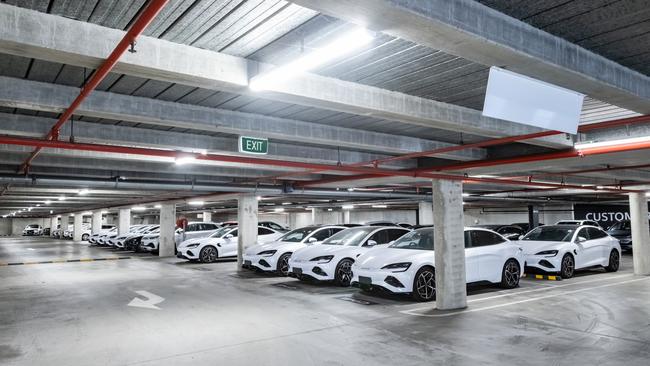
Mr Cool said BYD was unable to give a straight answer about what happened to the footage despite numerous queries.
“As for driving logs, it is part of our standard practice and standard operating procedures that we eject any SD card/s linked to any type of recording device prior to bringing the vehicle into the workshop for service or repairs — for the safety and privacy of our employees,” a BYD rep said in an email on June 3.
“Upon final inspection and road test, the quality assessor … will re-seat the SD card back into its slot, once the vehicle has been parked and switched off. I don’t know as to the whereabouts of the previous driving logs, all I can recommend is Disk Drill, which is an application/program that may be able to recover any lost or deleted data from the SD card.”
Mr Cool said this explanation did not make sense, as “removing the SD card does not erase previous footage”.
“I cannot comment as to the whereabouts of previous data on the SD card, as the SD card was already ejected when I went to replace the power battery pack,” the BYD rep replied.
Mr Cool said while “the reasons might not be malicious”, BYD “haven’t offered anything so much as an apology [that the technician may have] accidentally deleted all the footage”.
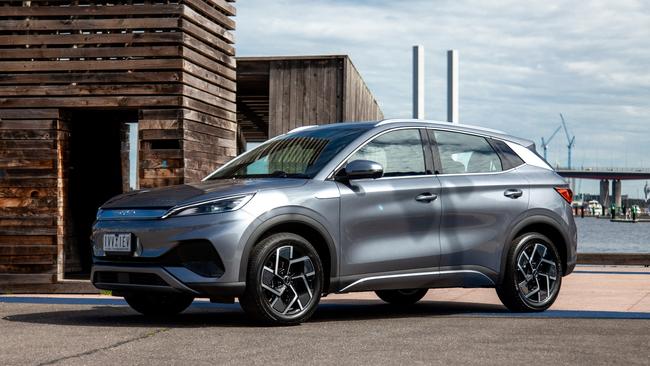
“It’s that lack of acknowledgment that they’ve done anything wrong in this process that is really driving us mad,” he said.
“Ironically the weekend before [the battery failure] happened we test drove a Seal, we were looking to get a second one.”
But now he said the experience had made them rethink “potentially EVs in general”.
“Just the reliability — the car was 15 months old at the time, you don’t expect the major component to fail,” he said.
“You go and buy a new 60kW battery, that’s the cost of the vehicle essentially. You don’t look at spending that money if it’s going to break that often. What’s the guarantee it won’t happen again?”
However he said it was BYD’s customer service that had been the real sticking point.
“On March 7 if they’d treated us like people and looked after us, ‘Gosh we’ll have a look at it’, we probably would have been happy to just replace the battery,” he said.
“It’s completely turned us off them as a company.”
BYD said since launching in Australia it had sold more than 22,000 vehicles.
“Battery failure is not a characteristic of the model, and this appears to be an isolated incident that occurred after 14 months and 33,000 kilometres on the road,” a spokeswoman said.
“After a thorough investigation, the customer was provided with a loan vehicle and BYD Automotive promptly replaced the battery in accordance with the manufacturer’s warranty.”
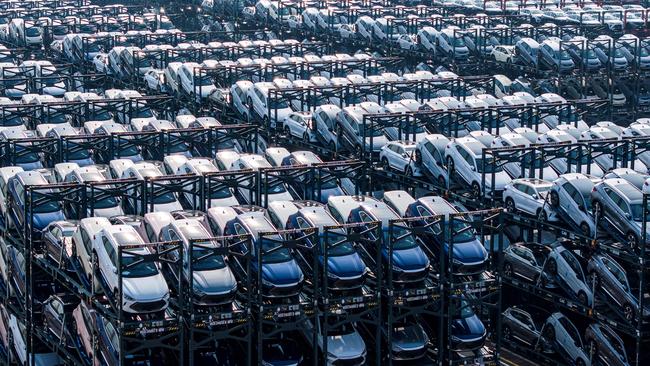
It comes as the Chinese giant, which overtook Tesla as the world’s number one EV maker in January, just posted a new record for monthly sales in Australia even as Elon Musk’s company is forced to slash prices.
With more affordable options than Tesla — the BYD Atto 3 starts from $44,499, versus the now discounted $54,900 starting price for the base Tesla Model 3 — BYD has quickly emerged as a popular alternative for eco-conscious Aussies on a budget.
BYD sold more than 1900 cars in May, well above its previous record of 1622.
Overall monthly sales of battery EVs saw a slight increase, accounting for 8.1 per cent of new cars sold, up from 7.7 per cent in May 2023, according to the Federal Chamber of Automotive Industries (FCAI).
EV sales in Australia have grown from about 1900 per month in 2022 to 8000 per month this year.
Tesla is still the most popular EV in Australia, making up more than half of sales last year, but BYD is quickly closing in — in large part thanks to generous subsidies from the Chinese government driving its prices down.
But the flood of Chinese-made EVs — more than 80 per cent of EVs sold in Australia, including Tesla, are manufactured in China — has raised concerns among some experts.
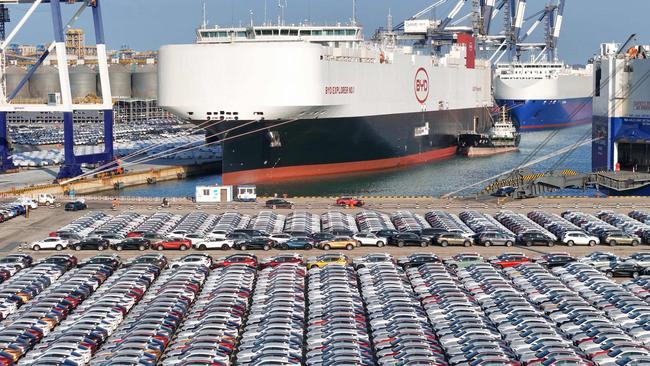
Those range from issues around safety, servicing delays and data privacy, to the broader geopolitical implications.
“If you rely on one geographic concentrated area for big major products like EVs, that is always very risky in terms of supply chains, in terms of the production capabilities,” Marina Zhang from the Australia China Research Institute told the ABC last week.
“Any supply chains are subject to external shocks, let’s not forget about Covid in 2020, the whole world was struggling with breakdowns of supply chains for some essential suppliers, so that is always a danger.”
Another Canberra BYD customer, Dr Awadhesh Prasad, told the broadcaster those concerns were realised when an early issue with their car took a month to fix.
“[My wife’s] concerns were related to the brand reputation of BYD because, compared to Tesla, BYD has been in the market only a couple of years,” Dr Prasad said.
“And the other reason was that if something goes wrong with the car, it will not be very easy to fix quickly and unfortunately that concern came largely true.”
BYD’s early rollout in Australia was also marred by several compliance breaches related to child seat anchor points, but the Australasian New Car Assessment Program (ANCAP) has since awarded each of its available models a five-star safety rating.
Originally published as ‘We were team BYD’: Canberra family’s Chinese EV nightmare





